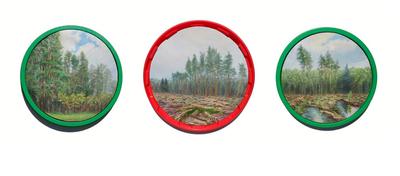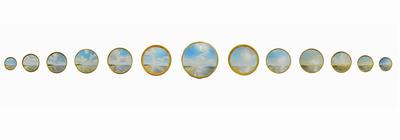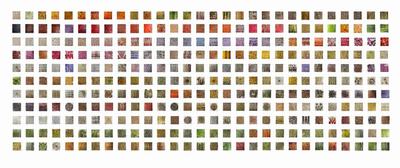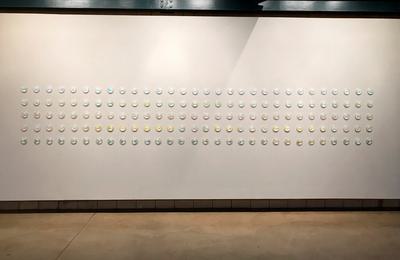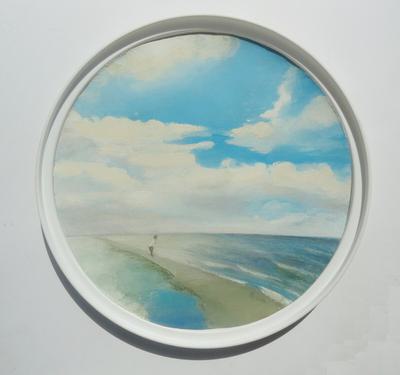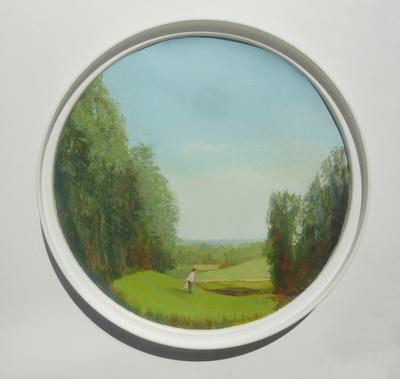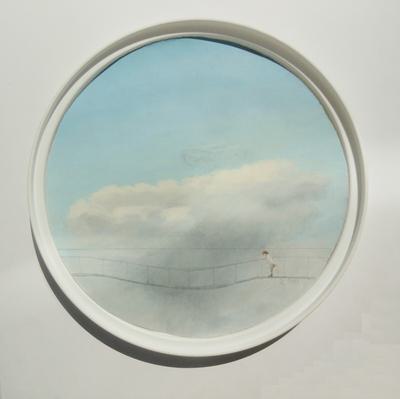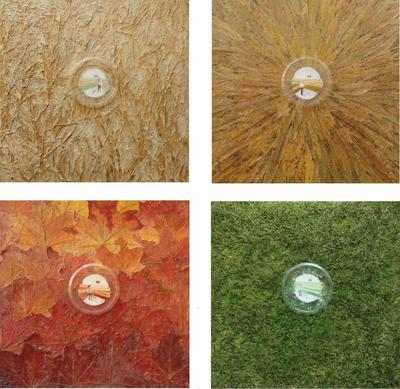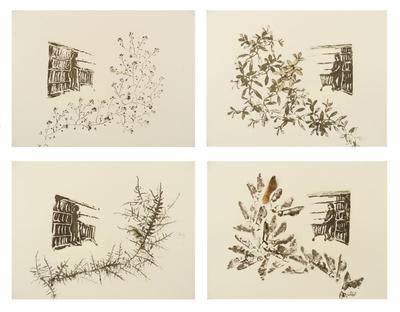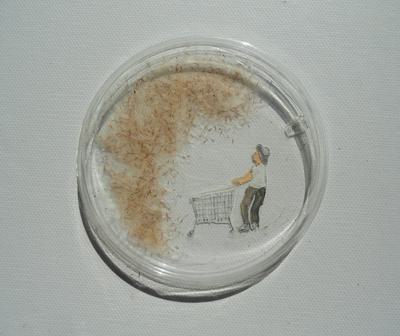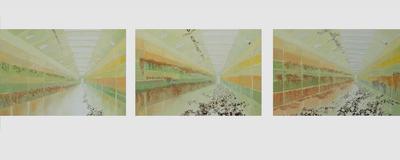Inguna Gremzde
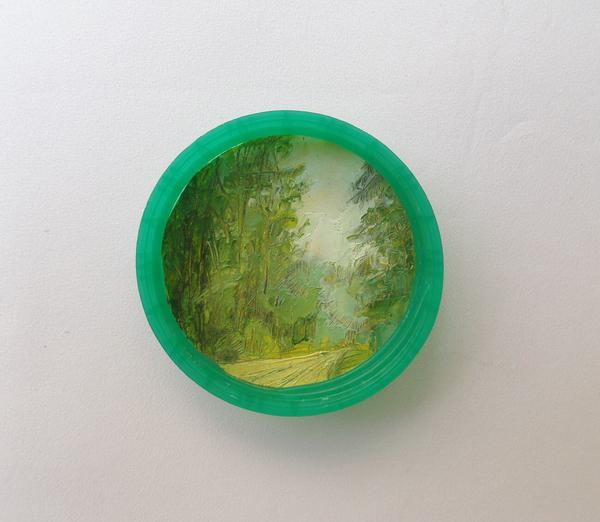
Gremzde's practice explores complex human and nature relationship issues regarding nature as a focus for the formation of individual and community's identity. Growing separateness from nature and dominating consumer lifestyle results in more time spent in constructed, artificial spaces like shopping malls and waiting halls defined as non-places, which being real measure of our time opposed to places have no identity, relations and history. The scene of nature paid close look at as opposite can open itself to reveal a secret life, a narrativity and history outside the given field of perception.
Part of Gremzde's practice is constituted of miniature landscape paintings placed in standardized plastic bottle caps, which are a small world on it's own without national restrictions depicting sky, fields and woods, surrounded by contemporary frame. Even not showing any trace of human presence the scenes compare contemporary consumer lifestyles with man's historically romantic relationship with nature. These small landscapes could have been intended for looking at when seized by a vague feeling of necessity to escape from undefined urban environment. Conceptually miniature scale could be regarded as a reference to the shrinking space of unaltered nature. The work in the same time investigates the common trend of landscape being regarded as unclean and unsafe unless neatly packaged, managed, labeled and turned into commodity. Important aspect of the project was to upcycle discarded caps, attempting to reduce the amount of single-use plastic waste in the world in some way.
The other part of project consists of paintings of a figure, dressed black-and-white wandering in plastic world, casting no shadow, each movement being monitored by surveillance cameras. Alone, but one of many, user of non-place is in contractual relations with it, a form of reminder being empty trolley he trundles round the supermarket. These round shaped images reminding of spy hole exploring the patterns of collective behavior and carrying a sense of dystopia masked by artificial supermarket environment are both intimate miniatures and mass-produced portraits of single figure on non-narrative shopping trip. The image painted on the reverse side of transparent plastic lid locks the inhabitant of the scene behind the plastic screen as opposite the directness of colourful landscapes.
The works reference their hybrid status as image, object and installation and are mostly exhibited as a group of numerous single pieces to reveal their greatest impact through a repetitive structure on the wall, to expose a common formal and conceptual stand. Like in any repetitive strategy the serial method boosts its single image as its formal visuality and intellectual concept get multiplied.
Helping Artists Keep Going
Axis is an artist-led charity supporting contemporary visual artists with resources, connection, and visibility.
